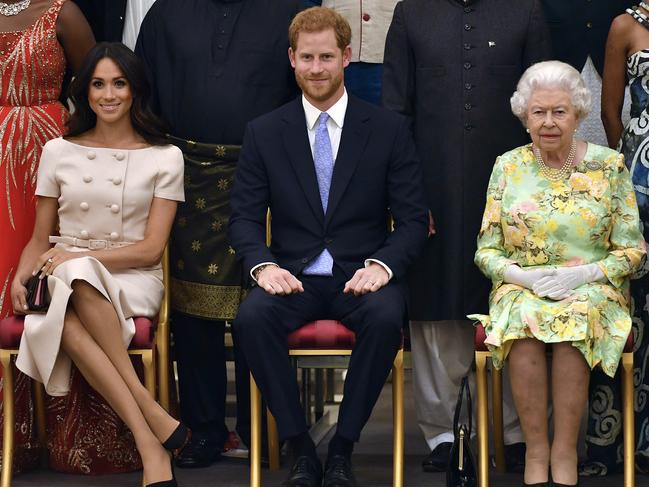Editorial: Scott Morrison sets a decisive tone
The PM’s declaration that he won’t reduce emissions by putting anyone’s job at risk or putting up electricity prices will be welcomed by industries and households hit hard in recent times by massively increased energy charges.
Opinion
Don't miss out on the headlines from Opinion. Followed categories will be added to My News.
JANUARY 13: Scott Morrison sets a decisive tone
A change of tone was evident in Prime Minister Scott Morrison’s extensive conversation on Sunday with the ABC’s David Speers.
Previously noncommittal on the topic of greater carbon-reduction targets to reduce future fire risks, Morrison declared no such move was planned.

“I’m not willing to put someone’s job at risk, a region town’s future at risk,” Morrison said regarding any possible carbon dioxide-reduction measures.
“I won’t put up electricity prices to do it or put a tax on them.”
The PM’s declaration will be welcomed by industries and households hit hard in recent times by massively increased electricity charges.
Morrison further indicated that a proposal for a royal commission into the cause of continuing bushfires will soon be taken to cabinet.
Again, this is a good step. And so would be a rapid approval for a royal commission into the suicides of so many Australian military veterans, as The Daily Telegraph’s Save Our Heroes campaign compellingly urged.
There is no reason why both royal commissions should not quickly be approved. The issues do not overlap, so there would not be any needlessly expensive investigative duplication.
As well, it is a positive sign that a royal commission into the bushfires is embraced at a federal level so that various state agendas do not interfere with either investigations.
Some may find fault with the PM’s claim that Australia could reduce emissions despite not altering our 2030 emissions-reduction target.
NSW can play a helpful role in this by increasing the extraction of natural gas, which would simultaneously provide regional employment and contribute fewer climate gases to the atmosphere than coal.
Consider this: between 2007 to 2017, the population of the US grew from 301 million to 328 million — a boost greater than Australia’s entire population.
At the same time, however, the total of US emissions dropped by 14 per cent.
The biggest driver of this impressive reduction, Texas Monthly magazine reported last year, was “the Texas-led revolution in hydraulic fracturing (or fracking), which has increased the availability of cheap natural gas, whose carbon dioxide emissions are half that of coal”.
We have a lot of natural gas. We need the will to extract it.
JANUARY 10: Toughen up, princess
The Russian novelist Leo Tolstoy famously opened his epic novel Anna Karenina by noting that “all happy families are alike, but each unhappy family is unhappy in its own way”.
As the world absorbs the news that Harry and Meghan Markle effectively quit their duties as senior members of the royal family via an oh-so-millennial resignation note posted on Instagram, it is worth reflecting on this notion.


The question must be asked, are the clearly unhappy Duke and Duchess — or as we presumably are to refer to them now, Mr and Mrs Sussex — driven to distraction by their unforgiving roles in the media’s spotlight? Or is this just a very public playing out of a not terribly unique story of a man who falls in love with a woman who tears him away from his friends and family?
With apologies to Tolstoy, we reckon the latter case is true.
While this week’s breach has been a long time coming, it was in hindsight completely predictable. An American divorcee and actor, Markle had already effectively divorced and cut off her own father before marrying Prince Harry. Then, having joined the royal family — a demanding role, to be sure, but one which she was under no illusions about — she appeared to set about tearing her husband from his family.
In 2018, after reported “tension” between the brothers, Harry and Meghan announced they were moving out of Kensington Palace to Frogmore Cottage, effectively splitting Harry from his brother William. Mistaking their new digs for Hollywood, their new neighbours were issued with an astonishing list of demands about not patting their dogs and only speaking if spoken to.

That’s not all. Even the staunchest republican would have to have some sympathy for the way the Queen, a woman who has spent her entire life in service of the British people (including doing real hard work as a truck mechanic during World War II) has been treated since Meghan came on the scene. The most recent insult, save for yesterday’s Instagram break-up note, came at Christmas when Harry and Meghan decided to ditch the royal Christmas at Sandringham in favour of Canada.
All this is one more drama for the 93-year-old monarch who, rather than deservedly basking in her decades-long reign, is now beset by family crises such as this and the scandal surrounding Prince Andrew. Markle’s actions have also empowered the beleaguered Australian republicans, who have opportunistically hopped on the drama to ask, if Meghan can divorce the royals, why can’t we?


Of course, Markle’s defenders will say that she is the victim here and that she has been chewed up and spat out by an unforgiving royal machine. Nonsense.
Compare her treatment to that of her sister-in-law Kate Middleton who, again, knew exactly what she was marrying into, did not come from a royal background, and who has been a model of dignity from day one.
Now, having cast themselves out of the royal garden, Harry and Meghan will have to shift for themselves. No doubt Mrs Sussex imagines a glamorous life of starring roles and fashionable, oh-so-progressive causes ahead of her.
But, having burned so many bridges, it will be interesting to see if her much-quoted desire to “thrive and be happy” will need a hefty dose of the stiff upper lip she turned her back on.
JANUARY 3: Safe and swift — the navy at its best
The Royal Australian Navy is scheduled this morning to begin the evacuation of hundreds of people from the coast near Mallacoota.
This is one of the more remarkable developments in our continuing bushfire disaster, which has brought us terror, tragedy and astonishing triumphs in equal measure.
A peacetime naval evacuation is far from commonplace.

One of Australia’s largest civilian rescue operations by our military took place more than 14,000km away in Lebanon, where more than 5000 Australians were evacuated during the 2006 conflict between Israel and Hezbollah militias.
Safe and swift rescues during wartime, of course, are something of an Australian naval tradition. Today’s feats in Mallacoota should be viewed in that historical context. Saving lives is what our navy does.
The experience of the navy in these operations is extensive, and often involves overcoming enormous difficulties.
In May 1941, for example, HMAS Nizam joined other vessels in a mission to evacuate troops from Crete. Collecting the troops while under the cover of darkness went smoothly.

But then German dive bombers repeatedly swooped on Nizam, apparently to the exclusion of other warships.
As Petty Officer Ronald Henry Stuart Perkins later recalled, Nizam “seemed to be singled out for the kill”.
Yet Nizam and those troops made it to safety — a move frequently repeated in the next few months, from Greece to Tobruk. These successes came even though, in the words of historian Hannah Viney, “the navy had been stretched to its limit and the ships’ companies were at breaking point”.
Few on earth can match our navy when it comes to large-scale evacuations.

This applies to operations conducted along the Libyan coast while under German attack or in Victoria’s East Gippsland region during some of the most unrelenting fires in Australian history.
Brigadier Doug Laidlaw, commander of the East Gippsland fires joint task force, yesterday locked in the navy’s plan.
“We are transferring personnel from shore to ship at 7am tomorrow,” Brigadier Laidlaw said. “An hour or so later hopefully the vessel will be in a position to sail.”
Right into the history books.
